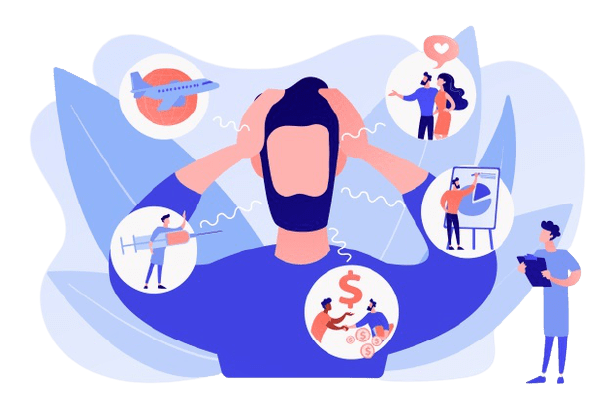Anxiety is one of the most common mental health disorders in the United States. According to the National Institute of Mental Health, around 18 percent of adults suffer from anxiety disorders. The numbers are even higher for teenagers and young children. If your child is struggling with anxiety, it’s important to get them the right treatment. In this blog post, we will discuss the different types of anxiety medication available for teens and how to choose the right one for your child.
Contents
- 1 What Is Anxiety?
- 1.1 What Are the Symptoms of Anxiety?
- 1.2 Treatment For Anxiety
- 1.3 Anxiety Medication For Teens
- 1.4 Medicine Options For Anxiety Treatment In Teens
- 1.5 Dosage For Anxiety Medication For Teens
- 1.6 How Effective Are Anxiety Medications For Teens?
- 1.7 Side Effects of Anxiety Medications For Teens
- 1.8 How Long Does Anxiety Medication Last?
- 1.9 Who Should Not Take Anxiety Medication?
- 1.10 When should I expect to see improvement in my symptoms?
- 1.11 Can Teens Take Anxiety Medication With Other Medicines?
- 1.12 Withdrawal Of Anxiety Medication For Teens
- 2 Conclusion
- 3 A Word From Therapy Mantra
What Is Anxiety?
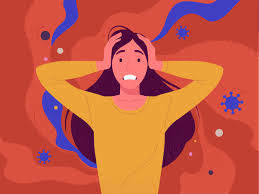
Anxiety is a feeling of unease, such as worry or fear, that can be mild or severe. Feeling anxious is normal in certain situations, like before a big test or when meeting someone new. But for people with anxiety disorders, these feelings are constant and overwhelming.
There are many different types of anxiety disorders, including generalized anxiety disorder, social anxiety disorder, and panic disorder. Each type has its own set of symptoms. For example, people with a generalized anxiety disorder may feel constantly anxious and worried about things that are unlikely to happen. People with a social anxiety disorder may feel extremely uncomfortable in social situations and have a fear of being judged or embarrassed. And people with panic disorder may experience sudden episodes of intense fear called panic attacks.
Any teen can suffer from an anxiety disorder, but girls are more likely to be affected than boys. Anxiety disorders can also run in families.
What Are the Symptoms of Anxiety?
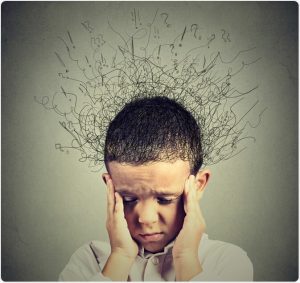
If you think your child may have an anxiety disorder, it’s important to look for specific symptoms. Not all children with anxiety will experience every symptom, but some common signs of anxiety include:
- Constant worry or fear
- Restlessness or feeling keyed up
- Trouble sleeping or nightmares
- Tiredness or lack of energy
- Difficulty concentrating
- Irritability or mood swings
- Muscle tension or headaches
- Avoidance of social situations or activities they used to enjoy
Treatment For Anxiety
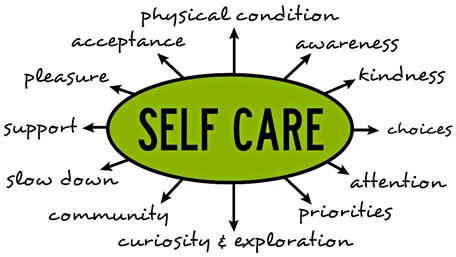
There are many different types of treatment for anxiety, including therapy, medication, and self-help techniques. The best type of treatment depends on the person’s symptoms and needs.
Therapy is a type of treatment that involves talking to a therapist about your thoughts and feelings. This can help you understand why you feel anxious and learn how to deal with your symptoms.
Medication is a type of treatment that involves taking medication to help control your anxiety. There are many different types of anxiety medications, and the best one for you depends on your symptoms.
Self-help techniques are techniques that you can do yourself to help control your anxiety. These include things like relaxation exercises, journaling, and positive thinking.
Anxiety Medication For Teens
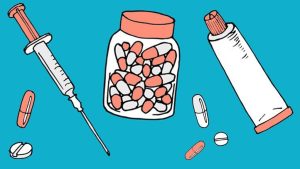
When it comes to anxiety medication for teens, it’s important to get the right treatment. The best type of treatment depends on the person’s symptoms and needs.
There are many different types of anxiety medications, and the best one for you depends on your symptoms. There are also many different ways to take medication, so it’s important to find the right one for you.
If you’re looking for anxiety medication for teens, talk to your doctor about the best treatment for you. They can help you find the right medication and dosage and figure out which type of therapy would be best for you.
Remember, it’s important to get the right treatment so that you can control your anxiety and live a happy, healthy life.
Medicine Options For Anxiety Treatment In Teens
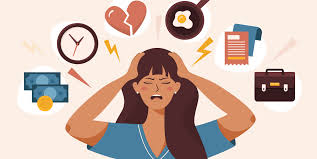
There are many different types of anxiety medications, and the best one for you depends on your symptoms. It’s important to find the right medication and dosage for you, so talk to your doctor about what would be best.
- Anti-depressants: Anti-depressants are a type of medication that is commonly used to treat anxiety. They work by increasing the levels of serotonin in the brain, which can help control your symptoms.
- Benzodiazepines: Benzodiazepines are a type of medication that is often used to treat panic disorder and social anxiety disorder. They work by slowing down the activity of the brain, which can help control your symptoms.
- Beta-blockers: Beta-blockers are a type of medication that is often used to treat anxiety disorders. They work by blocking the effects of adrenaline in the body, which can help control your symptoms.
Talk to your doctor about what would be best for you and find the right medication and dosage for you. Remember, it’s important to get the right treatment so that you can control your anxiety and live a happy, healthy life.
Dosage For Anxiety Medication For Teens

When it comes to anxiety medication for teens, it’s important to get the right dosage. The best way to find out what dosage is right for you is to talk to your doctor. They can help you find the right medication and dosage for you and figure out which type of therapy would be best for you.
Remember, it’s important to get the right dosage so that you can control your anxiety and live a happy, healthy life.
How Effective Are Anxiety Medications For Teens?
Anxiety medication for teens is one of the most common types of medications prescribed to young people. But how effective are they? And what are the risks associated with taking them?
One recent study looked at a lot of kids who had been diagnosed with being anxious. These kids were taking medicine. The researchers found that, overall, the medicine didn’t really help very much. In fact, it only helped a little bit.
But that doesn’t mean that all anxiety medication for teens is ineffective. For some kids, it can be really helpful. The key is to find the right treatment for your individual child.
Side Effects of Anxiety Medications For Teens

Any medication has the potential to cause side effects, and anxiety medications are no exception. The most common side effects of anxiety medications include:
- Drowsiness or fatigue: This is the most common side effect of anxiety medications. It can make it difficult for a teen to stay alert and focused in school or during other activities.
- Dizziness: Dizziness can cause problems with balance and coordination. It can also lead to falls, which can be dangerous for teens.
- Nausea: Nausea is a common side effect of many medications. It can be unpleasant and cause problems with eating and drinking.
- Headache: Headaches are a common side effect of many medications, including anxiety medications.
- Sexual problems: Anxiety medications can cause sexual problems in both men and women. These problems can include difficulty achieving or maintaining an erection (in men), difficulty becoming aroused or reaching orgasm (in women), and decreased sexual desire.
- Diarrhea: Diarrhea is an unpleasant side effect that can cause problems with digestion.
- Constipation: Constipation is another common problem with medications, including anxiety medications. It can cause discomfort and difficulty passing stool.
- Skin rash: A skin rash is a common side effect of many medications, including anxiety medications. It can be itchy and uncomfortable.
- Weight gain or loss: Some anxiety medications can cause weight gain, while others can lead to weight loss.
- Lack of coordination: Some anxiety medications can cause problems with balance and coordination. This can make it difficult to do everyday activities, such as walking or driving.
These are just some of the potential side effects of anxiety medications. It is important to talk to a doctor before starting any medication, including an anxiety medication. The doctor can help determine which medication is right for the teen and discuss any potential side effects.
How Long Does Anxiety Medication Last?

One of the first questions people have about anxiety medication is how long it lasts. The answer to this question depends on the specific drug and its dosage. Generally, though, anxiety medications last between four and six hours. This means that you will need to take them at least two or three times a day to make sure that people see them. Talk to your doctor about the best way to take your medication.
Never stop taking anxiety medications without talking to your doctor first. Suddenly stopping can lead to unpleasant withdrawal symptoms, such as headaches, nausea, and dizziness.
Your doctor may also recommend that you gradually reduce your dosage over a period of time to help avoid withdrawal symptoms.
Who Should Not Take Anxiety Medication?
Some people should not take anxiety medications, including pregnant women and people with certain medical conditions.
Be sure to tell your doctor about all of the medications you are taking, including over-the-counter drugs and supplements, before starting on anxiety medication. This is because many drugs can interact with anxiety medications, sometimes causing serious side effects.
When should I expect to see improvement in my symptoms?
Most people see some improvement in their symptoms within a few weeks of starting anxiety medication. However, it may take several months before the full effects of the medication are seen.
If you are taking anxiety medication and do not see any improvement in your symptoms, be sure to talk to your doctor. He or she may want to adjust your dosage or try a different medication.
If you are pregnant or have any other medical conditions, be sure to talk to your doctor before taking anxiety medication.
Most people see some improvement in their symptoms within a few weeks of starting anxiety medication. However, it may take several months for the full effects to be seen.
Can Teens Take Anxiety Medication With Other Medicines?
Yes, many teens take anxiety medication with other medicines without any problems.
It is important to talk to your doctor before taking anxiety medication if you are also taking any other drugs. This includes over-the-counter medications and supplements. This is because many drugs can interact with anxiety medications, sometimes causing serious side effects.
Withdrawal Of Anxiety Medication For Teens

If you are tapering off of your anxiety medication, be sure to do it slowly and under the supervision of your doctor.
Suddenly stopping can lead to unpleasant withdrawal symptoms, such as headaches, nausea, and dizziness.
Your doctor may also recommend that you gradually reduce your dosage over a period of time to help avoid withdrawal symptoms.
If you are pregnant or have any other medical conditions, be sure to talk to your doctor before tapering off of anxiety medication.
Talk to your doctor before starting or stopping any anxiety medication. He or she can help you figure out the best way to do it safely.
Conclusion
The good news is that there are many treatments available to help teens manage their anxiety. Signs and symptoms of a problem show up in a child. You should know what to do if they happen. One way you can do this is by reading through our blog post about these issues so you know what’s happening with your teen at home or in school. Let us know if we can answer any questions or provide more information!
A Word From Therapy Mantra
Your mental health — Your psychological, emotional, and social well-being — has an impact on every aspect of your life. Positive mental health essentially allows you to effectively deal with life’s everyday challenges.
At TherapyMantra, we have a team of therapists who provide affordable online therapy to assist you with issues such as depression, anxiety, stress, workplace Issues, addiction, relationship, OCD, LGBTQ, and PTSD. You can book a free therapy or download our free Android or iOS app.
